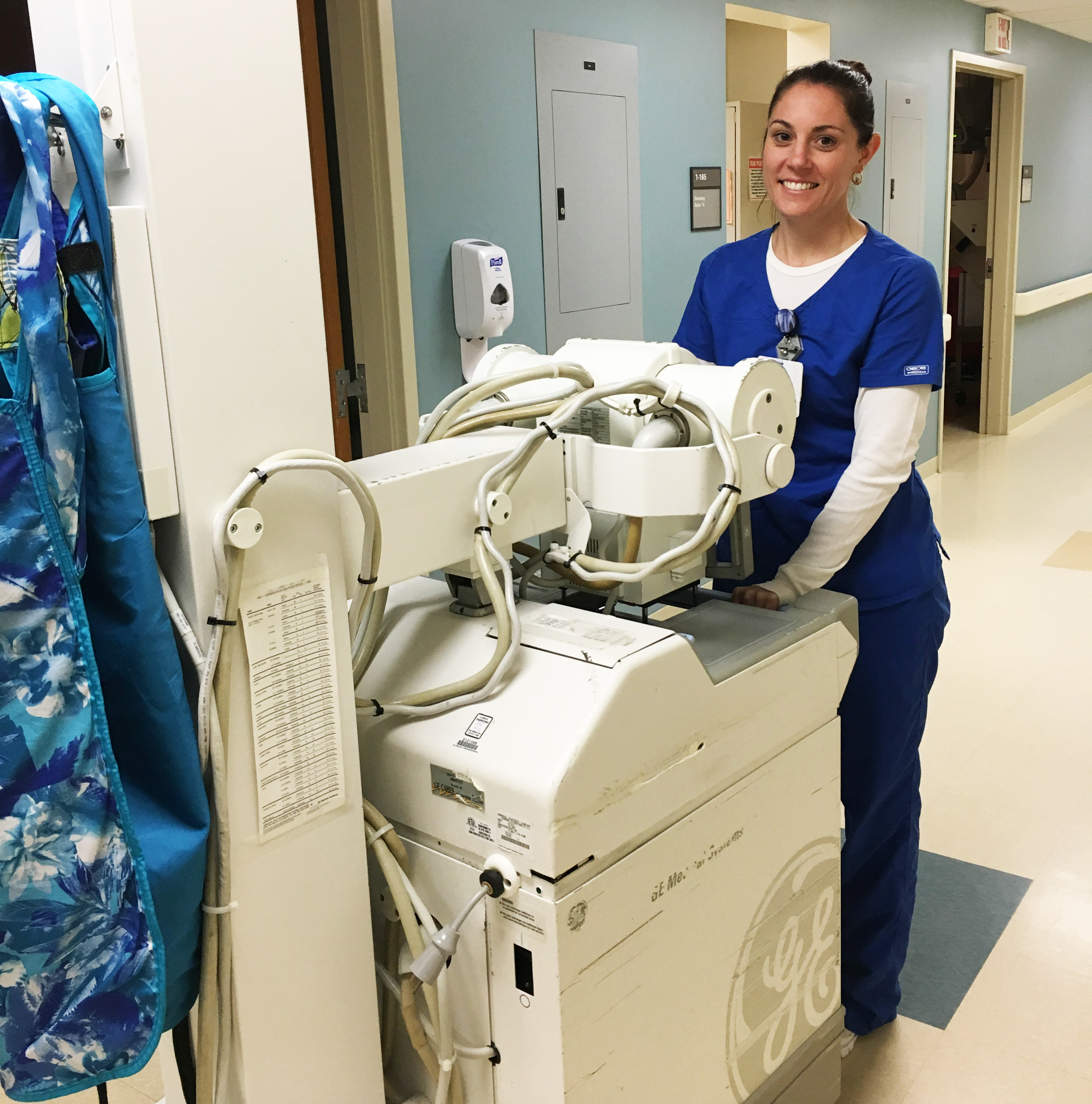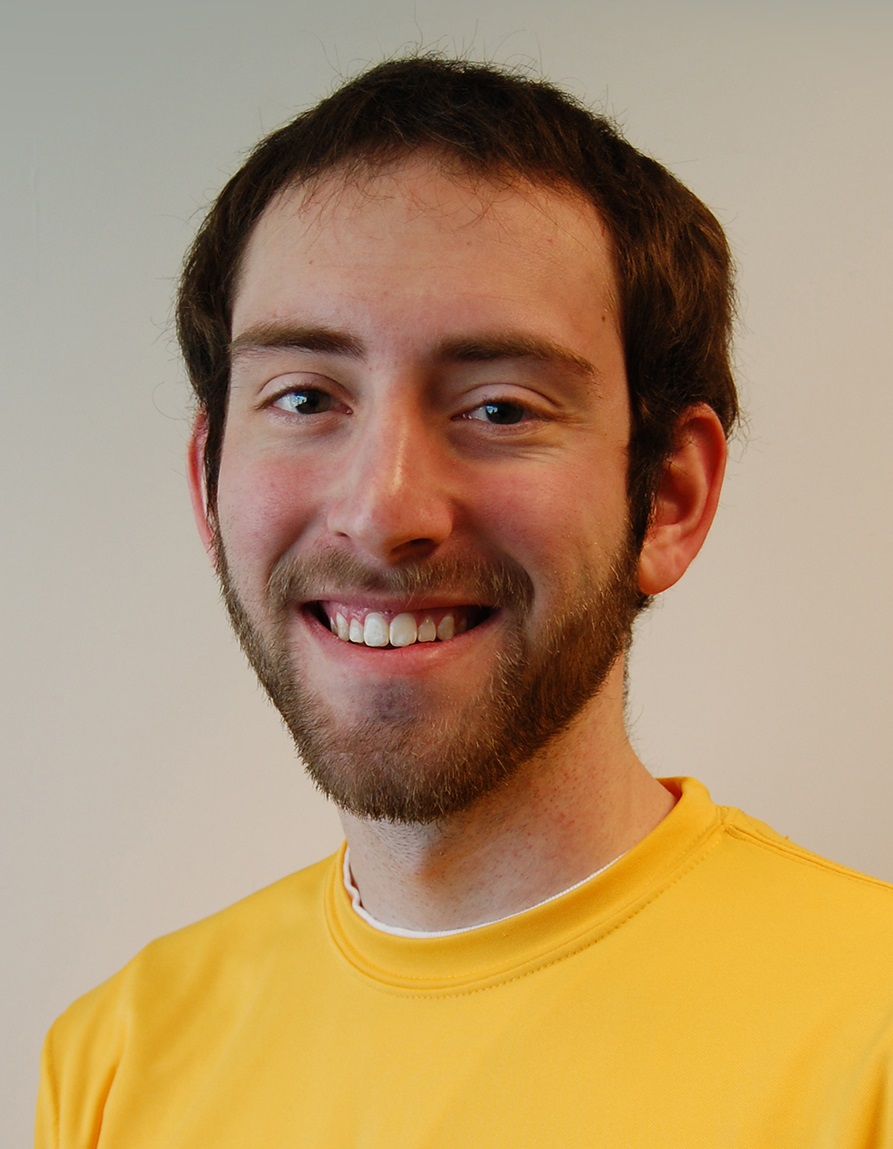Medical Imaging Sciences is one of many majors at Venango College focusing on the health sciences.
With concentrations in radiologic technology and sonography (ultrasound), Medical Imaging Sciences may appeal to you if you’re interested in working in the medical field as an x-ray or ultrasound technologist.
Venango College is a great place to find the supportive, nurturing and focused environment needed for success.
Experienced faculty provide students with advising and mentoring, and there is an opportunity to live in a Medical Imaging Sciences Living Learning Community at the Venango campus apartment complex.
The Bachelor of Science in Medical Imaging Sciences degree is designed as a 2+2 program with an academic preparation of two years (60 semester hours of science and general education) at Venango College.
Students can choose from two concentrations, radiologic technologist (x-ray technologist) or diagnostic medical sonographer (ultrasound).
Students spend their first two years on campus and take science and allied health courses designed specifically for the medical imaging sciences program. During this time faculty spend many hours coaching students for a successful transition from the university environment to the clinical environment.
The radiologic technology concentration continues with a two-year program of clinical study (60 semester hours) at one of six JRCERT-accredited, hospital-based schools of radiologic technology that are both in and out of state.
Those schools include ACMH School of Radiologic Technology in Kittanning, PA; Bradford Regional Medical Center's School of Radiography, Bradford, PA; Jameson Health System School of Radiography, New Castle, PA; Sharon Regional School of Radiography, Sharon, PA; UPMC Northwest Radiologic Technology Program, Seneca, PA; and AnMed Health School of Radiologic Technology, Anderson, SC.
The ultrasound concentration continues with a two-year program of clinical study in sonography (60 semester hours) at Great Lakes Institute of Technology in Erie, PA.
Application to any of these affiliated clinical schools typically occurs in the second semester of the sophomore year. Admission to a clinical program in radiologic technology or sonography is a competitive process and is at the discretion of the admissions committees at each clinical school.
The Venango Campus Career Services staff work with you to build your resume and refine your interviewing skills in preparation for the admission process.
|
Erin Bahurinsky, a senior from the Meadville area, is currently completing a clinical rotation at UPMC Northwest in Seneca, PA. She chose the Medical Imaging Sciences major to fulfill a desire to make a difference in patients’ lives by assisting physicians diagnose and treat illnesses.
“All of my experiences, both at Clarion University and UPMC Northwest, have been extremely positive and have prepared me well for a future as a registered radiologic technologist,” says Bahurinsky.
“Clarion’s success as a program is because of the preparation provided to us students, including coursework and clinical rotations. When you leave, you have a Bachelor of Science degree and real world experience, and not all programs out there provide both,” she says.
She adds, “With the guidance I’ve received from both the Clarion faculty and the clinical instructors and technologists at UPMC Northwest, I know that when I leave this program I am going to be a confident, competent technologist.”
“I am so fortunate that I chose Clarion University and UPMC Northwest for my education.”
Students have the opportunity to apply for a number of scholarships that are exclusive to health care students, can join the Medical Imaging Sciences Club and participate in activities that will help gain a better understanding of the major and chosen profession.
“The graduates in our program are very well prepared for success in the medical field. The bachelor’s degree distinguishes Clarion graduates among most other medical imaging professionals."
"Our graduates are positioned for meaningful career advancement opportunities and are prepared for graduate level programs,” says Dr. Renee Bloom, Allied Health assistant professor and Medical Imaging Sciences program coordinator.
She adds, “Since the inception of the medical imaging program in 1998, Clarion graduates have had phenomenal success passing the national certification examination in radiologic technology administered by the American Registry of Radiologic Technologists."
"That speaks well of the quality of our program and the outstanding clinical education provided to our students by our hospital partners.”
In addition, current credentialed medical imaging professionals can complete their degree online. Clarion Online provides credentialed radiologic technologists, diagnostic medical sonographers, nuclear medicine technologists, radiation therapists, and medical dosimetrists the option of earning their bachelor's degree by taking convenient online courses.
Online course work allows students the convenience of taking classes where and when they need them, scheduling around work and family responsibilities.
|
Jaren Ananea is a junior from the Brookville area who is completing his first year of clinical study at Armstrong County Memorial Hospital (ACMH) in Kittanning, PA. Having a strong passion for science and medicine, as well as being somewhat accident prone as a child and being on the receiving end of x-rays on many occasions, have all led Jaren to pursue a medical imaging degree from Clarion.
“I have always been fascinated by the many ways x-rays are obtained and how the human body looks on x-ray image, and Clarion’s program has allowed me to explore these interests while preparing me for a career helping others as a radiologic technologist. Clarion’s solid science curriculum will be beneficial as I continue my education in pursuit of a Master of Physician Assistant Studies degree,” says Ananea.
He continues, “Clarion’s coursework and clinical experiences are both challenging and rewarding, and the support provided by everyone from my Clarion professors, ACMH program directors and clinical coordinators, to my classmates is what makes this program special.”
“My experiences at ACMH have put into perspective how much of an impact we have on patients’ lives and how much our care means to them, and I am thankful for the opportunity that Clarion University’s Medical Imaging program has given me.”
For individuals who are already credentialed radiologic technologists or diagnostic medical sonographers, up to 60 clinical credits that are required for the 120-credit BS degree in Medical Imaging may be awarded for clinical coursework already completed, depending on the type and length of educational program the individual has completed.
Credits are awarded on a case-by-case basis with consideration given to program accreditation, program length and content, the applicant's performance in the program, and professional credentialing of the applicant.
If you see yourself becoming part of the exciting and ever-growing world of health care, or continuing your education, contact Theresa Nestor at 814-393-1211 or tnestor@clarion.edu for more information about the program, the application process, as well as upcoming open houses and visit days.

